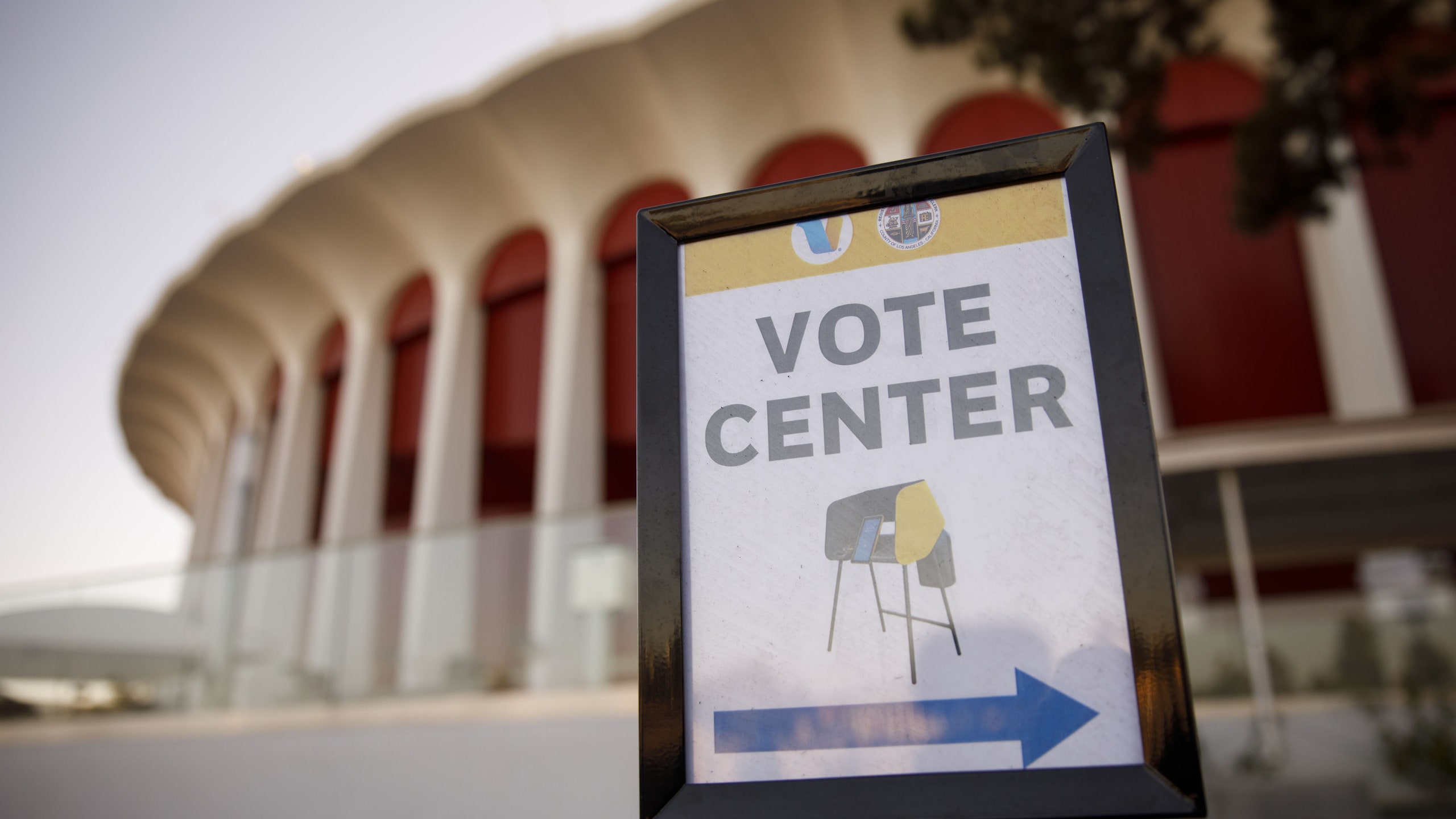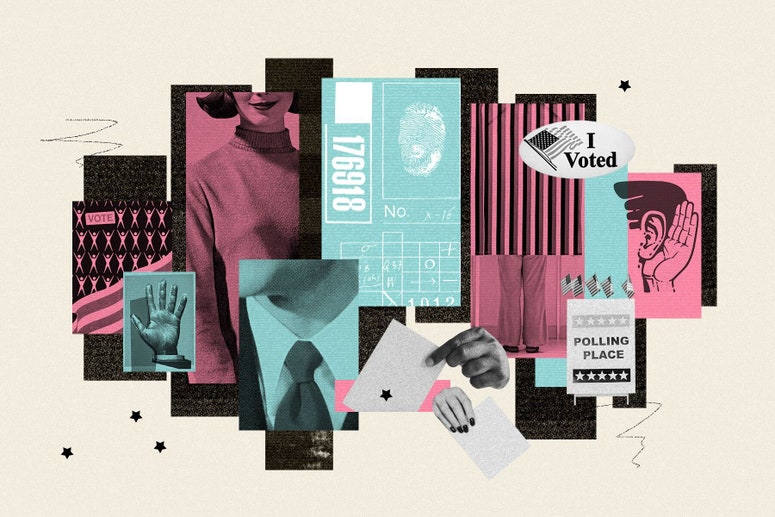The general elections come with added weight for many transgender voters this year. It’s no secret that the United States President can set the tone for national policy. With LGBTQ+ rights on the chopping block of President Donald Trump’s election platform, LGBTQ+ voters are having to heavily consider their options as they head into the voting booth this year.
Presidential election aside, 33 Senate seats and the entire House of Representatives are up for re-election, meaning LGBTQ+ hang in the balance as state lawmakers have been critical in the right’s expanded efforts to gut trans rights.
The trans community has been under critical legislative attacks across the country. There are bills banning trans girls from K-12 sports, new laws limiting access to life-saving care, and the looming threat of the Heritage Foundation’s “Project 2025.”
We already know that trans people vote at a higher rate than cis people, despite the many bureaucratic barriers in their way to do so. While over 825,000 trans adults will be eligible to vote in the 2024 general elections, at least 210,000 do not have identification that reflects their correct name, gender marker, or presentation, according to the Williams Institute, and at least 91,300 reside in states with the strictest voter ID laws. This could make it unnecessarily difficult or impossible to vote in some cases, according to Lauren Kunis, the CEO and executive director of the voting rights nonprofit VoteRiders.
According to VoteRiders, 14 states have strict voter ID laws, which require voters to prove their identity with a form of ID that matches their initial registration exactly — a potential problem if a trans voter has legally changed their name since registering to vote. Additionally, 291 restrictive voting laws have been considered in 40 states in 2024 alone. It is perhaps no coincidence that many states that have passed anti-trans legislation also adopted stricter voter ID regulations since the last election cycle.
“Trans voters are at the top of the list of groups that are particularly challenged by voter ID laws in the United States,” Kunis says. “It can get complicated and tricky if you’re a trans voter looking to cast a vote, particularly if you’re in the process of transitioning.”
Given the current political landscape, it’s important to be as informed as possible about your voting rights prior to arriving at the polls. Below, Kunis spoke to Them about some of the most common questions trans voters have ahead of election day: What are voter ID laws? What voter ID requirements impact trans people? How should I prepare as a trans voter ahead of the election? What should I do if I am told I cannot vote?
What are voter ID laws?
Voter ID laws are regulations mandating that voters provide documents to confirm their identity at the polls. In some cases, these regulations require showing government-issued photo IDs and driver’s licenses to vote; in others, they could be bills that prove residency and your name, paychecks, student IDs, or other forms of identification.
Voter ID laws are part of a larger political strategy to limit access to the polls, according to the American Civil Liberties Union. Historically, strict voter ID laws have barred specific groups from voting, such as communities of color, LGBTQ+ people, and people who cannot afford government-issued IDs.
According to the Brennan Center for Justice, as many as 11% of U.S. citizens do not have a government-issued form of identification required to vote in states with the strictest voter ID laws. Despite the harms that these laws can perpetuate, 38 states currently have some form of voter ID regulation in place.
What voter ID requirements impact trans people?
Voter ID requirements can impact trans voters, just as they impact all voters. According to Kunis, the steps many trans people undertake as part of their transition — such as changing your legal name or gender marker — can also make voting more complicated.
For example, if the name on your government photo ID does not match the name you initially registered to vote with, it may prevent you from voting at the polls in states with strict voter ID laws. The same could go for your gender marker or if a photo on your ID no longer matches your gender presentation.
Beyond systemic barriers like voter ID laws, trans people may also face indirect challenges to casting their ballot, such as harassment from poll workers and other voters. “Just as trans individuals face heightened discrimination in general, trans voters may be targeted and have an uncomfortable or even unsafe experience,” Kunis says.
How should I prepare to vote ahead of election day?
These obstacles to voting can feel daunting, but they shouldn’t deter trans voters looking to cast a ballot from participating in the election process. “Taking it all in, these barriers are significant and they’re no joke,” Kunis says. “But the good news is they’re not insurmountable.”
According to the U.S. Vote Foundation, some questions you should ask yourself ahead of an election are:
- Am I registered to vote?
- What are my state voter ID requirements?
- Are my records updated with my current name and gender marker?
- Does the name on my voter registration form match the name on my voter ID?
If you want to check your voter registration to make sure it’s current and see what name you’re registered under, you can check the National Association of Secretaries of State website. Once you know what name your registration is under, you can check your state requirements for voter ID. Because voter ID laws vary from state to state, it’s important to understand what documents you need to provide when you go to the polls. If you’ve missed your state’s deadline on changing your voter registration name, you can contact VoteRiders free helpline for trans voters.
Note that in some states, you can register to vote on the same day as the election. Regardless of your state requirements, Kunis recommends creating a voting plan and taking additional steps to feel prepared ahead of election day, including:
- Make sure you bring all legally required voting documents. You can use the 866-OUR-VOTE guide to check what kinds of ID are required to vote in your state
- Bring voter ID information cards or the National Center for Transgender Equality’s #VotingWhileTrans guide to show poll workers your state’s requirements
- Bring an extra form of ID if you have it like a utility bill, just in case poll workers ask for one
- Bring a friend to the polls
- Save hotlines into your phone that you can call day of in case of voting emergencies, such as VoteRiders (844-338-8743) or the National Election Protection Hotline, at 866-OUR-VOTE.
VoteRiders is one of several nonprofit organizations that offer assistance to voters with questions about their state’s voter ID regulations. Kunis says trans voters who are concerned about their ability to meet their state’s requirements should utilize the VoteRiders free legal hotline before election day.
If you find yourself in the worst case scenario on election day and are being turned away at the polls, don’t panic. There are still several resources you can utilize to ensure you are able to cast your ballot. Kunis recommends calling the VoteRiders support line to get on-the-ground assistance with poll workers.
In some states, voters can cast a provisional ballot if they believe they are registered to vote. The validity of their registration is then determined after the polls close. Additionally, you can call the 866-OUR-VOTE hotline on election day if you feel your right to vote is being infringed upon at the polls.
Ultimately, if you know your state’s laws and have the documentation you need to vote, you should enter the polls with confidence.
“To minimize risk of discrimination or difficulty, no matter where you live, the first step is to know your rights,” Kunis says. “Make sure you’re doing everything you can to be an empowered and prepared voter.”
Get the best of what’s queer. Sign up for Them’s weekly newsletter here.


